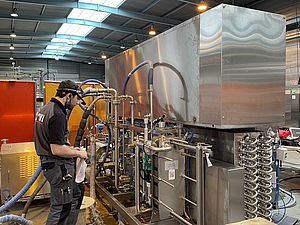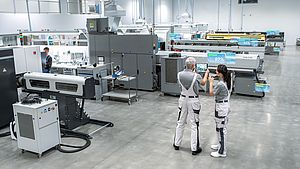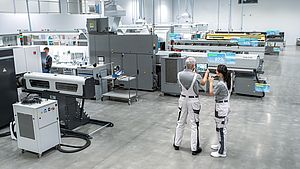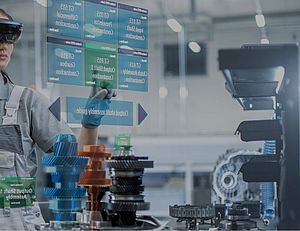PTC. On 18th May 2022, the European Commission presented its "RePowerEU" plan to the press. A 300 billion Euro plan to develop the European Union's energy autonomy by making it less dependent on Russian fossil fuel imports and by promoting the generation of renewable energy. Energy autonomy is evidently a major strategic and ecological issue. But it will only be entirely successful if Europe can reindustrialize at the same time.
A strategic and ecological necessity
While the RePowerEU plan is an immediate response to the crisis in Ukraine and the resulting upheaval in the energy market, it is also part of a longer-term effort driven by climate and the need for coordination between EU countries. How can the European Union achieve its greenhouse gas emission reduction objectives without directly controlling its own energy production and reducing its consumption of imported fossil fuels? As such, the strategic and ecological interests of Member States are largely aligned. A joint plan was therefore drawn up quickly to put in place ambitious measures: boost biomethane production capacity, diversify suppliers outside the EU, approve the first hydrogen production projects, joint purchase of gas and hydrogen by the EU’s energy platform, etc.
Not forgetting industrial autonomy
This particularly ambitious plan is definitely good news both for Europeans affected by energy inflation and for the climate. But in order to fully succeed ecologically, energy autonomy is not enough: relative industrial independence is also vital. Indeed, one third of the European Union's carbon footprint is due to imports. How can the European economy be decarbonized while remaining dependent on exporting countries whose climate policy remains unclear?
A matter not just of resilience
Since the start of the COVID-19 pandemic, the issue of European reindustrialization has been raised by several political and economic institutions. It was considered a factor of resilience against health crises and their disastrous consequences on supply chains. In the age of Industry 4.0 however, relocating industry is also an ecological issue of the utmost importance. Europe has the opportunity to develop its own production plant that is efficient, flexible, resilient and, above all, energy efficient.
In this context, any effort towards greater European industrial autonomy does not just mean freedom from exporting countries, particularly in Asia, but also represents an important step towards ecological transition and the decarbonization of the economy. In some sectors affected by shortages, as seen for semiconductors, these efforts could bear fruit in the short term. In February 2022, the European Commission put forward a proposal to reduce the dependence of member states in this field: 90 to 100 billion euros would be invested by 2030. This initiative aligns economic, strategic and ecological interests, and should now be rolled out to other industrial sectors to ensure that the industry of the future serves ecological transition.
Olivier Helterlin, VP Sales - France Benelux and Switzerland & CEO PTC France





























